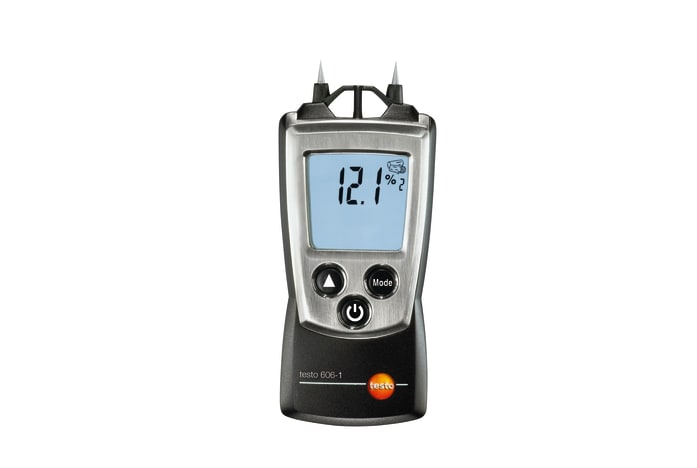Moisture Meter Buying Overview: What to Seek in High-Quality Instruments
Moisture Meter Buying Overview: What to Seek in High-Quality Instruments
Blog Article
The Ultimate Guide to Moisture Meters: A Comprehensive Review and Exactly How They Can Save You Cash
In the realm of structure upkeep, building and construction, and various industries, the relevance of accurately determining moisture levels can not be overstated. Wetness meters function as vital devices in discovering and checking moisture web content in materials, aiding in stopping costly problems and guaranteeing the quality of items. Comprehending the nuances of various kinds of dampness meters, their applications, and the potential cost-saving benefits they offer can be a game-changer for experts and companies alike. Discovering exactly how these tools can not only enhance processes but likewise contribute to financial savings is a journey worth starting.
Types of Moisture Meters
Numerous sorts of wetness meters are readily available for different applications in various markets. One typical type is the pin-type dampness meter, which gauges the electric resistance between 2 pins placed into a product. This type is ideal for timber, drywall, and various other building products. Pinless dampness meters, on the various other hand, use electro-magnetic sensing unit plates to scan a larger area without creating damage to the product's surface area. These meters are ideal for quickly evaluating wetness levels in big areas such as floorings and wall surfaces.
Infrared dampness meters gauge the thermal homes of a material to identify its moisture content non-invasively, making them useful for applications where pin or pinless meters might not be ideal. Recognizing the various types of dampness meters offered can aid industries select the most ideal tool for their specific moisture dimension requirements.

Advantages of Utilizing Moisture Meters

Furthermore, using wetness meters can lead to boosted energy performance. In agricultural settings, moisture meters play a crucial duty in enhancing crop yields by enabling farmers to monitor soil dampness levels and make educated watering choices.
Just How to Select the Right Moisture Meter
Selecting the proper wetness meter involves thinking about key aspects such as product compatibility, dimension array, and calibration accuracy. When selecting a wetness meter, it's important to make certain that the meter appropriates for the particular material you will be screening. Different products have varying electric residential properties that can influence moisture readings, so choosing a meter created for your material is important for accurate results. Furthermore, consider the dimension series of the wetness meter. Guarantee that the meter can identify wetness degrees within the range required for your applications. Calibration precision is one more important aspect to remember (Moisture Meter). Opt for a moisture meter with dependable calibration to make sure exact and consistent readings. Some meters might call for periodic calibration adjustments, so comprehending the calibration procedure is necessary. By thoroughly assessing these elements, you can choose a wetness meter that fulfills your needs and supplies exact moisture measurements for your jobs.
Proper Techniques for Moisture Meter Usage
To guarantee precise moisture analyses and make best use of the effectiveness of a wetness meter, employing appropriate techniques is crucial. When utilizing a pin-type wetness meter, put the pins or probes right into the product being tested till they make complete get in touch with. Make pop over to these guys sure the pins are perpendicular to the surface area to get one of the most specific analysis. For pinless moisture meters, hold the gadget level against the product and move it gradually to cover the whole location for a typical analysis. It's crucial to adjust the dampness meter according to the product being tested to improve accuracy. Take numerous readings throughout the surface area and average them out for a much more reputable outcome. Additionally, make certain that the material being tested is acclimated to the atmosphere to prevent skewed analyses. Normal upkeep of the wetness meter, such as cleansing the pins or sensing unit, is additionally important to guarantee precise and constant readings. By adhering to these correct strategies, customers can rely upon their moisture meter to give credible wetness degrees, assisting in preventing expensive damages or guaranteeing top quality in various applications.

Price Savings Via Moisture Meter Applications
Exactly how can the strategic application of wetness meters lead to substantial cost savings throughout various sectors? In the agriculture market, moisture meters help in figuring out the optimal time for collecting plants, preventing over-drying or excess wetness that can impact the final item's top quality.

Furthermore, in the food processing market, dampness meters are essential for checking product top quality and guaranteeing compliance with safety and security policies. i thought about this By precisely gauging dampness web content in food items, makers can protect against perishing, preserve quality, and minimize waste, causing significant price financial savings. In general, the critical application of dampness meters is a useful investment that can lead to substantial expense reductions and boosted performance throughout various sectors.
Verdict
In final thought, moisture meters are beneficial tools for measuring and detecting dampness degrees in different materials. By using the best wetness meter and adhering to proper methods, users can effectively prevent costly problems caused by excess wetness.
Dampness meters offer as crucial devices in identifying and checking moisture content in products, assisting in preventing pricey damages and making certain the quality of items. Infrared wetness meters gauge the thermal buildings of a material to identify its dampness web content non-invasively, making them valuable for applications where pin or pinless meters might not be suitable.Moisture meters provide invaluable benefits in accurately monitoring and evaluating moisture levels in diverse products and atmospheres. In agricultural settings, moisture meters play an important duty in optimizing plant returns by allowing farmers to keep an eye on dirt dampness levels and make educated irrigation decisions.In conclusion, dampness meters are useful tools for determining and discovering moisture degrees in numerous materials.
Report this page